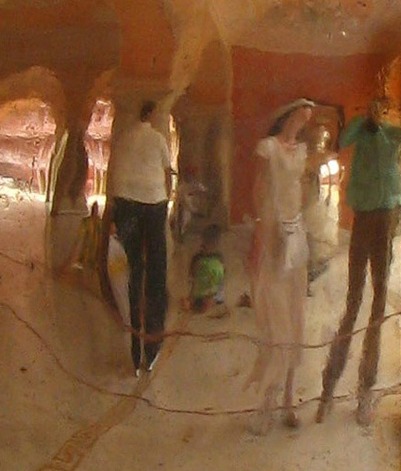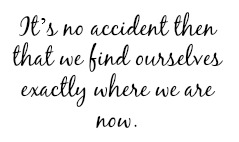
 It is a most mortifying reflection for a man to consider what he has done, compared to what he might have done. Samuel Johnson.
It is a most mortifying reflection for a man to consider what he has done, compared to what he might have done. Samuel Johnson.
Self-reflection is such an underrated and under-used method of personal growth, I believe. Although, in fairness to anyone who hasn’t undertaken this ‘pastime’ to any great extent, I think there can be some very good reasons for this.
For example, we usually don’t want to revisit experiences that have been painful or embarrassing, dissecting them to find the gem of learning which would give us the key to moving on with some calmness or equanimity. Instead, our self-reflection tends to get stuck on justifying our actions or finding fault in others – the ubiquitous blame culture which seems to pervade our society nowadays.
But does this really help us? After all, if we are to learn from our mistakes, we must take the time to find the lesson that awaits us in that embarrassing moment, that over-reaction which resulted in bad feeling or that moment of feeling unable to speak up when we so badly wanted to.
On the flip-side, do we take enough time to mull over those moments of happiness, joy or contentment? Whilst these moments are a pleasure to remember, do we actually take the time to really understand why they made us feel so happy? If we don’t do so, then it becomes a little accidental as to whether we will be able to recreate those feelings at will in the future. Wouldn’t it be better somehow to be able to actually re-live the feelings, if not the actual experiences? Surely this would not only enhance our lives but also the lives of those around us.
As Peter Drucker advises us…
Follow effective action with quiet reflection. From the quiet reflection will come even more effective action.
Because in taking time to reflect we will indeed become more effective. As I’ve said in previous blogs, repeating the same actions over and over but expecting a different outcome is nonsensical, although for many of us we do somehow expect a different result! We may continue to eat the same diet and continue to gain weight, continue to flatter that same man/woman who is clearly not interested or continue to spend all our money and more each month and get deeper into debt because we haven’t taken the time to reflect upon our actions and the outcomes they are creating for us. It’s no accident then that we find ourselves exactly where we are now. 
But this is where self-reflection can have a very positive effect on our current wellbeing and our future circumstances and if we aspire for a more abundant future, then surely this is worth the effort?
So how exactly can we reflect and draw useful conclusions from our daily occurrences?
A diary is the most obvious place to start as most people will already have kept a diary at some stage of their lives. Even going back to earlier versions of yourself through the pages of your diary can be useful (as well as cringe worthy at times!). Diaries of our earlier experiences can show us how much we’ve grown and there can be some startling realisations that things we are experiencing now are the fruit of seeds sown many, many years ago. But self-reflection goes further than just recording our experiences and feelings on paper (or other medium appropriate for you).
For self-reflection to be truly useful though, we need to also analyse each of our days or significant moments and challenge ourselves to think of the ways situations and results could be improved by changed actions or reactions. As mentioned above, it can be all too easy to look for someone else to blame for the circumstances we find ourselves in but in doing this we lose the opportunity to improve our lives by learning the lessons which are contained within each moment. What could we have done better? What could we have avoided doing? How could we improve our reactions? These are some of the questions we should challenge ourselves to answer so that we don’t fall into the end result described by Margaret J Wheatley below:
Without reflection, we go blindly on our way, creating more unintended consequences, and failing to achieve anything useful.
Another method of self-reflection is to seek input from other people, but be warned, whilst this method could provide some significant opportunities for growth, it’s not for the faint hearted!
There are not many among us who are comfortable with receiving honest, but constructive criticism and indeed, conversations of this nature can test the best of friendships. However, for those who feel ready to receive feedback, it can be a unique and eye-opening way of making improvements to our behaviour in a very short space of time. Consequently we are likely to see improvements in our results sooner than if we’d been left to work it out for ourselves.
In any event, if you feel this could be a useful and meaningful way for you to improve your chances of achieving the results in life you are looking for, then I’d encourage you to go ahead with whatever method works for you. I would emphasise however that it’s important to have some way of recording your findings since you will probably want to return to your thoughts and insights as time progresses.
Also, don’t get too hung up on ideas that you should journal/write a full account of your day in your diary every day. Sometimes you will be drawn to thought only and may later record your findings. Journaling is a personal tool and you should therefore use the routine that works best for you, always remembering that you may change your method at any time to suit yourself!
So is self-reflection a part of your every day routine? Do you keep a diary and do you find it useful? Please share your thoughts…you never know when your words may inspire or help someone else!
Photo: Mackaysavage




Wonderful post! I really appreciate your comments regarding taking personal responsibility. Our culture has evolved into a place where too many find it easy to blame others, but much too difficult to look in the mirror to find the reasons for their present circumstances.
I agree Sheri! It’s always too easy to blame other people or our circumstances for where we find ourselves in life, but it’s of little value to personal growth and the opportunity to escape those circumstances we’ve caused!
Thanks for your comment! 🙂